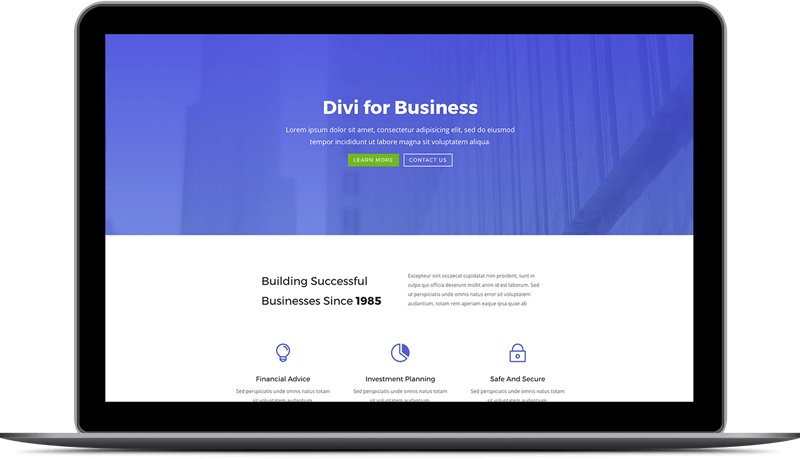eCommerce SEO Service in Bangladesh
Are you looking for an eCommerce SEO service in Bangladesh? If so, then you have come to the right place. We offer a wide range of SEO services that are designed to help you improve your online visibility and sales. Our team of SEO experts will work closely with you to identify your key online marketing goals and objectives. We will then tailor a bespoke SEO strategy that is designed to help you achieve these goals. Our eCommerce SEO services include keyword research, on-page SEO, off-page SEO, link building, and much more. We also offer a wide range of other digital marketing services such as social media marketing, email marketing, and PPC.
Get Free Consultant
What We Do
Keyword research
Keyword research is the process of finding and choosing the right keywords to target for your website or blog. It’s a crucial part of SEO (search engine optimization) and can make or break your success in getting found online.
There are a few different ways to do keyword research, but the best way is to start with a brainstorming session. Write down a list of all the potential topics and keywords you can think of that are relevant to your business.
Competitor analysis
competitor analysis in SEO is the process of analyzing your competition in the search engine results pages (SERPs). This can be done by looking at their organic search rankings, paid search ads, backlink profiles, and more.
Competitor analysis is important for SEO because it can help you understand what your competition is doing right, and where there are opportunities for you to improve your own SEO strategy.
On-page optimization
On-page optimization is the process of optimizing individual web pages in order to rank higher and earn more relevant traffic in search engines.
On-page optimization requires a solid understanding of how search engines work and what ranking factors they consider most important. Once this foundation is in place, you can begin making changes to your web pages with the goal of earning higher rankings and more traffic.
off-page optimization
Off-page optimization is the process of optimizing a website for the purpose of improving its search engine rankings. The main aim of off-page optimization is to build quality backlinks to a website.
There are a number of ways to build backlinks, but the most effective methods include guest posting, directory submission, and social bookmarking. Guest posting involves writing articles for other websites in your niche, and including a link back to your website in the author bio. Directory submission involves submitting your website to online directories, and social bookmarking involves bookmarking your website on social media sites such as Facebook and Twitter.
Local SEO
Local SEO is a type of optimization that is specifically geared towards making your site more visible in search results for people who are searching for businesses in your area. This can be done by adding your location to your website’s title and meta tags, as well as your content. You can also add your address and phone number to your website, and make sure your business is listed on Google Maps.
Image SEO
The alt tag is a short description of an image that is used by search engines to help identify the content of a page. When an image is unable to be displayed for any reason, the alt tag will be displayed in its place.
Alt tags are also used by people who are visually impaired, as they can be read by screen readers. Therefore, it’s important to make sure that your alt tags are descriptive and accurate.
Content marketing
Content marketing is a form of marketing that involves creating and sharing content (such as blog posts, videos, and infographics) in order to promote your business and attract leads.
Technical SEO
Technical SEO is the practice of optimizing a website for Google’s search algorithm. It is a subset of the larger field of SEO, which covers all the aspects of optimizing a website for better search engine ranking. Technical SEO is a complex and ever-evolving discipline, but its goal is simple: to make it easier for Google to find and index your content.
Link Building
Link building is the process of acquiring links from other websites to your own. This is done in order to improve your site’s search engine ranking and visibility. There are many different techniques that can be used to build links, and it is important to choose the right ones in order to avoid being penalized by the search engines. Some of the most effective link building techniques include guest posting, directory submission, and social bookmarking.
E-commerce SEO
What is eCommerce SEO?
Ecommerce SEO is the process of optimizing an online store for search engines. It involves making sure that the website is properly structured and optimized for the relevant keywords. Additionally, ecommerce SEO requires building links to the website in order to improve its visibility in the search engine results pages (SERPs).
The goal of ecommerce SEO is to drive traffic to an online store and convert that traffic into sales. In order to do this, the website must be properly optimized so that it appears as high as possible in the search engine results pages for relevant keywords.
There are a number of factors that go into ecommerce SEO, including on-page optimization, off-page optimization, and link building.
On-page optimization refers to the process of optimizing the website itself for the relevant keywords. This includes things like optimizing the website title, meta tags, and header tags for the relevant keywords. Additionally, on-page optimization also involves making sure that the website’s content is relevant and keyword-rich.
Off-page optimization, on the other hand, refers to the process of building links to the website in order to improve its visibility in the search engine results pages. This can be done in a number of ways, such as submitting articles to article directories, participating in forums, and leaving comments on blogs.
Link building is an important part of ecommerce SEO, and there are a number of different ways to go about it. One way is to submit articles to article directories with links back to the website. Another way is to participate in forums and leave comments on blogs with links back to the website.
Keyword research For E-commerce SEO
There are a variety of different techniques that you can use for e-commerce keyword research. However, the most important thing is to start with a solid foundation of keywords that are relevant to your products and business.
Once you have a foundation of relevant keywords, you can then begin to expand your keyword list by adding more specific keywords, as well as variations of your existing keywords.
In addition to using keyword research to expand your eCommerce keyword list, you can also use it to improve your website’s search engine optimization (SEO). By optimizing your website for the keywords that are most relevant to your products and business, you can improve your chances of ranking high in the search results for those keywords.
If you are not familiar with ecommerce keyword research , there are a number of resources that you can turn to for help. There are many books and online articles that can teach you the basics of keyword research for ecommerce website. In addition, there are a number of software programs that can help you with your keyword research and SEO efforts. like
Best Keyword Research For Ecommerce SEO
- Google Keyword Planner
- Google Trends
- Ahrefs
- Semrush
- Ubersuggest
Site architecture for ecommerce website
eCommerce When planning the architecture for an eCommerce website, there are a few key factors to keep in mind. The most important factor is the user experience—you want to make sure that your website is easy to navigate and use, and that the checkout process is as streamlined as possible. Another important factor is scalability—you want to make sure that your website can handle an increase in traffic and transactions as your business grows. Finally, you need to consider security—you want to make sure that your website is secure and that your customers’ information is safe.
To create a website that is easy to use, you need to start by planning the structure of your website. You need to decide what pages you will need, and what information will go on each page. Once you have the structure planned out, you can start designing the look and feel of your website. It is important to keep the user experience in mind when designing your website—you want to make sure that it is easy to navigate and that all of the important information is easy to find.
When it comes to scalability, you need to make sure that your website is built on a platform that can easily handle an increase in traffic and transactions. If you are using a platform that is not scalable, you may find that your website crashes or slows down when you get a spike in traffic. To avoid this, you need to make sure that your website is built on a scalable platform such as WordPress.
Finally, security is an important consideration for any ecommerce website. You need to make sure that your website is secure so that your customers’ information is safe. One way to do this is to install an SSL certificate on your website. This will encrypt your customers’ information so that it cannot be accessed by anyone who does not have the proper key.
By keeping these factors in mind, you can create an ecommerce website that is easy to use, scalable, and secure.
Technical SEO For E-commerce Website
The ecommerce website landscape is constantly changing, which can make it difficult to keep up with the latest SEO best practices. However, by understanding the basics of technical SEO and how it applies to ecommerce websites, you can create a solid foundation for your website that will help it rank higher in SERPs.
Technical SEO is the practice of optimizing a website for Google’s search algorithm. It is a subset of SEO that focuses on improving the crawlability, indexation, and ranking of a website.
Technical SEO includes optimizing a website’s architecture, code, and content. It is important to have a well-optimized website because it makes it easier for Google to crawl and index your site. A well-optimized website also ranks higher in search results.
There are many factors that go into technical SEO. Some of the most important factors are site speed, mobile-friendliness, and structured data. Site speed is important because it affects how long it takes for a page to load. Mobile-friendliness is important because more and more people are using their smartphones to search the internet. Structured data is important because it helps Google understand the content on your website.
Technical SEO is a complex and ever-changing field. However, by focusing on the most important factors, you can make sure that your website is well-optimized and ranks high in search results.
10 Technical SEO Checklist
- Mobile-Friendly Website
- SSL Certificates
- Canonical URLs
- Checking Robots.txt
- Optimize Your XML Sitemap
- Speed Up Your Website
- Fix Crawl Errors
- Server Errors
- Schema Markup
- Fix Broken Links
On-page SEO For E-commerce Website
On-page SEO is one of the most important aspects of eCommerce. It is the process of optimizing your online store to rank higher in search engine results pages (SERPs), which will in turn drive more traffic and sales.
There are a number of factors that contribute to on-page SEO, and we’ll go over some of the most important ones below.
1. Title Tags
Your title tags are one of the most important elements of on-page SEO. They are the first thing that people will see when your store comes up in search results, so it’s important to make them descriptive and keyword-rich.
For example, if you sell women’s clothing, your title tag might be something like “Women’s Clothing | Shop the Latest Styles.”
2. Meta Descriptions
Your meta descriptions are another important element of on-page SEO. These are the short descriptions that appear under your title tags in search results, and they should be compelling and keyword-rich as well.
3. Product Pages
Your product pages are one of the most important places to optimize for SEO. Make sure that each page has a unique, keyword-rich title tag and meta description. In addition, your product pages should include plenty of high-quality, keyword-relevant content.
Some things you can do to optimize your product pages include:
Including product reviews and testimonials
Using rich media such as images and videos
Including detailed product descriptions
4. Blog Posts
Including a blog on your ecommerce website is a great way to add fresh, keyword-rich content on a regular basis. Make sure to optimize your blog posts for SEO by including relevant keywords in the title, meta description, and body text.
5. Site Structure
Your site’s structure is another important element of on-page SEO. Make sure that your website is easy to navigate and that all of your pages are well-linked. A well-structured website will help search engines index your pages more effectively and will make it easier for visitors to find the information they’re looking for.
6. URL Structure
Your website’s URL structure is also important for SEO. Make sure to use keywords in your URLs where appropriate, and keep your URLs short and to the point.
7. Image Alt Text
Alt text is the text that appears in place of an image if the image can’t be displayed. It’s important to include relevant alt text for your images, as it helps search engines understand what the images are about.
8. Social Media
Including social media buttons on your ecommerce website is a good way to get more social media engagement, which can help improve your SEO. In addition, be sure to post your content on social media sites and encourage your followers to share it.
9. Mobile Optimization
With more and more people using mobile devices to access the internet, it’s important to make sure that your ecommerce website is optimized for mobile. This includes having a responsive design and ensuring that your pages load quickly on mobile devices.
10. Analytics
Finally, it’s important to set up Google Analytics on your ecommerce website. Google Analytics is a free tool that allows you to track your website’s traffic and see how visitors interact with your site. This information can be very helpful in fine-tuning your on-page SEO.
On-page SEO is a complex and ever-changing process, but the tips above will help you get started on the right foot. For more information on on-page SEO, be sure to check out our blog post on the topic.
Our Latest E-commerce SEO Projects

Clickshoper.com

bdmanja.com

manja.co.uk
10 FAQ About eCommerce SEO
What is eCommerce SEO?
eCommerce SEO is the practice of optimizing an online store to rank higher in search engine results pages, and thus drive more traffic and sales.
Why is eCommerce SEO important?
Search engine traffic is one of the most valuable sources of traffic for eCommerce stores, so it’s important to invest in SEO in order to increase your store’s visibility and draw in more potential customers.
What are some common eCommerce SEO mistakes?
There are a few common eCommerce SEO mistakes that can hurt your store’s ranking and visibility, including:
- Not optimizing product pages
- Not using relevant keywords
- Not optimizing for mobile
- Not having unique and compelling content
How can I optimize my eCommerce store for SEO?
There are a few different things you can do to optimize your eCommerce store for SEO, including:
Optimizing your product pages
Using relevant keywords
Optimizing for mobile
Creating unique and compelling content
What are some common eCommerce SEO best practices?
There are a few common eCommerce SEO best practices that can help you improve your store’s ranking and visibility, including:
- Optimizing your product pages
- Using relevant keywords
- Optimizing for mobile
- Creating unique and compelling content
How can I track my eCommerce SEO progress?
There are a few different ways you can track your eCommerce SEO progress, including:
Using Google Analytics
Using a rank tracking tool
-Checking your organic traffic
What are some eCommerce SEO tools?
There are a few different eCommerce SEO tools that can help you improve your store’s ranking and visibility, including:
Google AdWords Keyword Planner
Semrush
Moz Keyword Explorer
AHREFs Keyword Generator
How do eCommerce SEO keywords work?
Ecommerce SEO keywords are the words and phrases that people use when they search for products or services online. By targeting these keywords in your eCommerce marketing, you can reach people who are already interested in what you have to offer.
The first step is to research the keywords that people are using to find products like yours. You can use a tool like Google AdWords Keyword Planner to find out which keywords are being used most often.
Once you have a list of keywords, you can start using them in your eCommerce marketing. Use them in your product descriptions, your blog posts, and in your social media posts. Make sure to use them in a way that is natural and relevant, or you could be penalized by Google.
If you want to get even more out of your eCommerce SEO keywords, you can use them to create targeted landing pages. These are pages that are designed specifically for people who are searching for the keywords you are targeting. By creating a landing page that is optimized for your keywords, you can increase your chances of getting people to convert into customers.
How can I find an eCommerce SEO expert?
There are a few ways to find an eCommerce SEO expert. You can either search for one online or ask for referrals from people you know.
If you search for an eCommerce SEO expert online, you’ll likely find many options. To narrow down your choices, you can read reviews or look at case studies. Once you’ve found a few potential experts, you can reach out to them and ask for more information.
If you know someone who has worked with an eCommerce SEO expert before, they may be able to provide a referral. This can be a great way to find someone you can trust.
Once you’ve found an eCommerce SEO expert, you can work with them to improve your online store’s visibility and organic search traffic. By following their advice and implementing their strategies, you can boost your sales and reach new customers.
How Is SEO for E-Commerce Different?
When it comes to SEO for e-commerce, there are different areas you need to focus on, such as optimizing:
product pages and descriptions
diversifying product content and information
images on your website
your homepage
Let's Work Together!
Ut porttitor imperdiet hendrerit. Suspendisse pulvinar lacus nec sollicitudin finibus ligula quam bibendum dui, maximus ornare ex nulla ut lacus.
